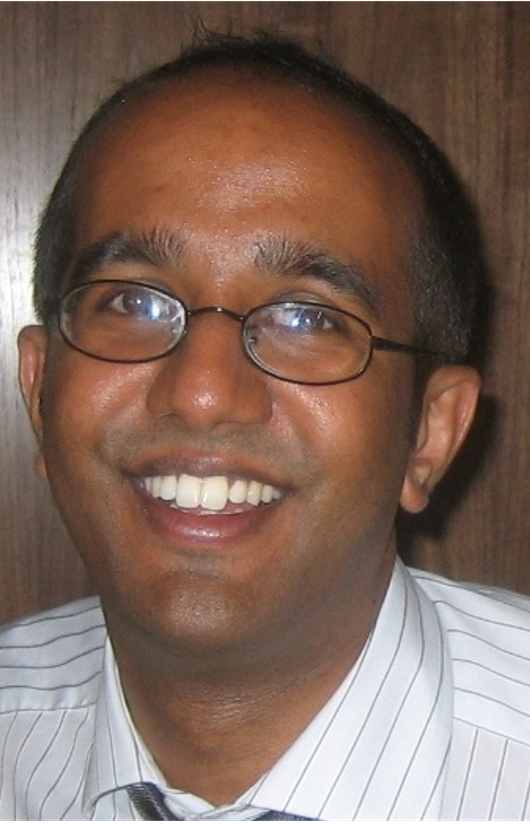
Dr Aran Singanayagam
Dr Aran Singanayagam completed his medical training at the University of Edinburgh in 2005 achieving distinction in his final examinations alongside a first-class intercalated BSc in physiology. He trained as a respiratory doctor within north-west London, primarily at St Mary’s, Royal Brompton and Harefield hospitals.
During this time, Aran developed a clinical and academic interest in respiratory infections and airway diseases including asthma and COPD. His interest led to a Wellcome Trust clinical research PhD training fellowship in 2011-2014 studying the effects of the commonly used therapies inhaled corticosteroids on the immune response of the lungs to viral and bacterial infections. This work was recognised by the British Thoracic Society investigator award in 2015 and was published in the high-impact journals Nature Communications and Science Translational Medicine.
Dr Aran Singanayagam has a range of clinical expertise and interests, including:
- asthma
- chronic obstructive pulmonary disease
- bronchiectasis
- respiratory infections
- post-COVID19 respiratory disease
- general respiratory disease.
In 2020, Dr Singanayagam was awarded a prestigious Clinician Scientist Fellowship from the Medical Research Council which allowed him to establish an independent research group alongside working clinically as a respiratory consultant.
Dr Singanayagam’s research program focuses on understanding the mechanisms that dictate disease progression and susceptibility to viral and bacterial infections in chronic lung diseases such as asthma or COPD. The aim is to develop new therapies to improve symptoms and prevent infections in individuals suffering from these conditions. Recently, the group has also expanded its focus toward studying mechanisms underpinning acute and longer-term sequelae of COVID-19.
Dr Singanayagam has received over £1.5 million in research funding and he supervises PhD and MSc students as well as medical students for research attachments. He sits on the Editorial Board of the European Respiratory Journal and has published over 100 research papers to date with a H index of 42. Dr Singanayagam lectures about his clinical specialist areas and research at national and international meetings and is involved in public and patient education.
- American Journal of Respiratory and Critical Care Medicine, top peer reviewer award (2022).
- Medical Research Council (MRC) Clinician Scientist Fellowship (2020).
- Worshipful Apothecaries’ Society Prize for best research paper 2019.
- International Workshop for Lung Health. Rising Star Award 2016.
- British Thoracic Society Early Career Investigator Award 2015.
- Airway mucins promote immunopathology in virus-exacerbated chronic obstructive pulmonary disease.
- A persistent neutrophil-associated immune signature characterises post-COVID19 pulmonary sequelae.
- Virus-induced volatile organic compounds are detectable in exhaled breath during pulmonary infection.
- In vivo bronchial epithelial interferon responses are augmented in asthma on day 4 following experimental rhinovirus infection.
- Inhaled corticosteroids downregulate the SARS-CoV-2 receptor ACE2 in COPD through suppression of type I interferon.
- Effect of CRTH2 antagonism on the response to experimental rhinovirus infection in asthma: a pilot randomised controlled trial.
- Our evolving view of neutrophils in defining the pathology of chronic lung disease.
- Beclomethasone Has Lesser Suppressive Effects on Inflammation and Antibacterial Immunity Than Fluticasone or Budesonide in Experimental Infection Models.
- Inhaled corticosteroid suppression of cathelicidin drives dysbiosis and bacterial infection in chronic obstructive pulmonary disease.
- Corticosteroid suppression of antiviral immunity increases bacterial loads and mucus production in COPD exacerbation.

